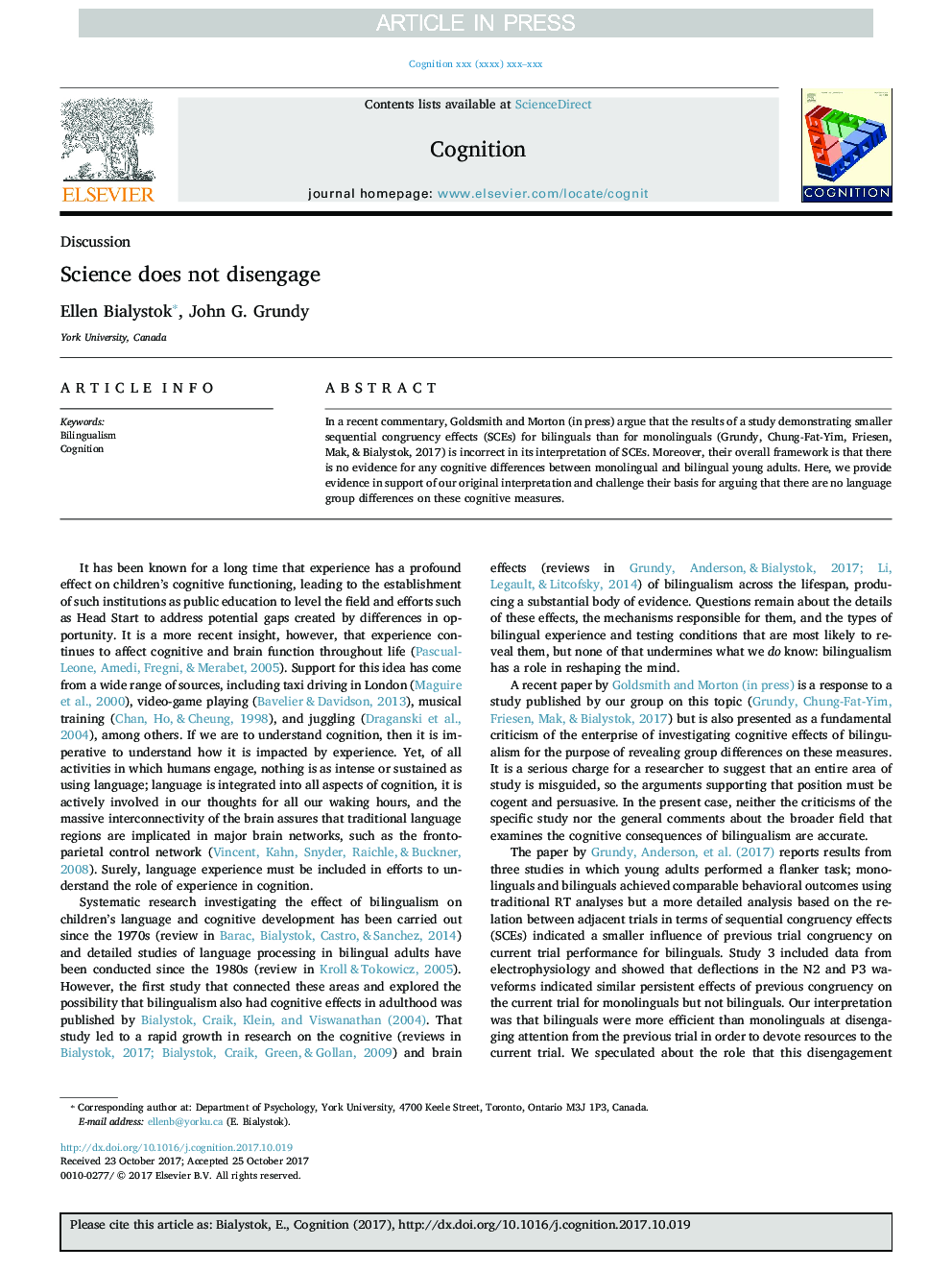| Article ID | Journal | Published Year | Pages | File Type |
|---|---|---|---|---|
| 7285719 | Cognition | 2018 | 4 Pages |
Abstract
In a recent commentary, Goldsmith and Morton (in press) argue that the results of a study demonstrating smaller sequential congruency effects (SCEs) for bilinguals than for monolinguals (Grundy, Chung-Fat-Yim, Friesen, Mak, & Bialystok, 2017) is incorrect in its interpretation of SCEs. Moreover, their overall framework is that there is no evidence for any cognitive differences between monolingual and bilingual young adults. Here, we provide evidence in support of our original interpretation and challenge their basis for arguing that there are no language group differences on these cognitive measures.
Keywords
Related Topics
Life Sciences
Neuroscience
Cognitive Neuroscience
Authors
Ellen Bialystok, John G. Grundy,
